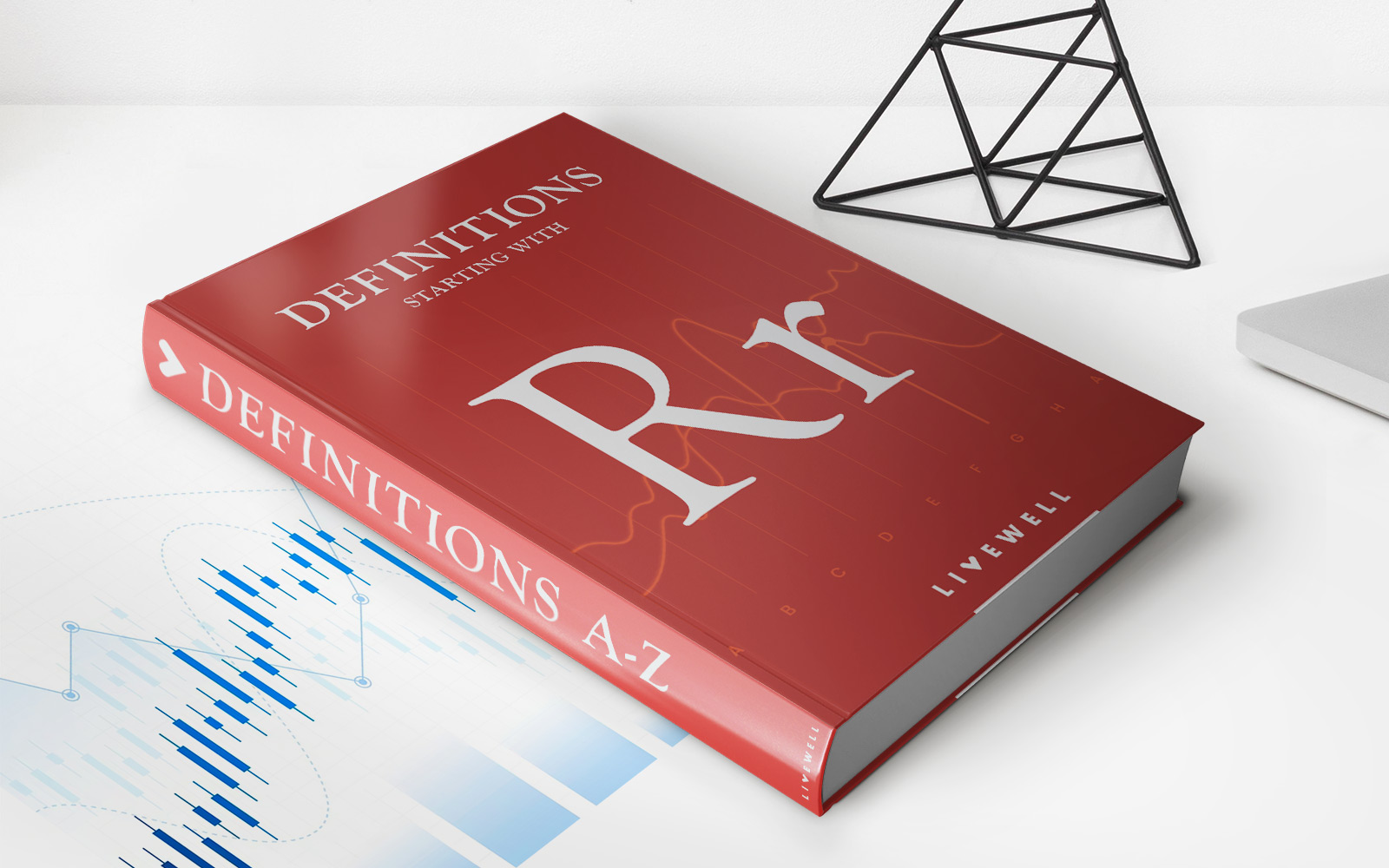

Finance
Why Are Lithium Stocks Down
Published: January 19, 2024
Discover the reasons for the recent decrease in lithium stocks and its implications for the finance industry. Stay informed on the latest market trends and investment opportunities.
(Many of the links in this article redirect to a specific reviewed product. Your purchase of these products through affiliate links helps to generate commission for LiveWell, at no extra cost. Learn more)
Table of Contents
Introduction
Welcome to the world of lithium stocks, where market volatility can be as electrifying as the batteries themselves. Investors in this sector understand all too well the roller coaster ride that lithium stocks can offer. In recent times, the prices of lithium stocks have experienced a downward trend, prompting investors to wonder why.
Lithium is an essential element in the production of rechargeable batteries, especially those used in electric vehicles (EVs). As the world shifts towards greener and more sustainable energy solutions, the demand for lithium and lithium-ion batteries has soared. Many analysts and experts predicted a bright future for lithium stocks, fueling the interest of investors.
However, the reality has been a bit different. Despite the growing popularity of EVs and the emphasis on renewable energy, lithium stocks have faced challenges that have resulted in a decline in their value. Understanding the reasons behind this downturn is crucial for investors looking to navigate the ever-changing landscape of the lithium market.
In this article, we will delve into the various factors impacting lithium stocks, including global supply and demand dynamics, shifts in the electric vehicle market, geopolitical factors, environmental concerns, and economic factors affecting the lithium industry. By examining these factors, we hope to shed light on the reasons behind the recent decline in lithium stocks and help investors make informed decisions.
Overview of Lithium Stocks
Lithium stocks refer to companies involved in the exploration, production, and distribution of lithium, primarily used in batteries for various applications, including electric vehicles, renewable energy storage systems, and electronic devices. These stocks can be publicly traded on stock exchanges, allowing investors to buy and sell shares in these companies.
Lithium stocks offer investors an opportunity to capitalize on the growing demand for lithium-ion batteries, which are considered a crucial component of the clean energy transition. As the world seeks to reduce dependence on fossil fuels and mitigate the impacts of climate change, the demand for lithium-ion batteries is expected to surge.
Investing in lithium stocks can be both exciting and challenging. It is essential to understand the dynamics of the lithium industry and the factors influencing the performance of these stocks. While lithium stocks have the potential for significant returns, they are also subject to market volatility and risk due to factors such as supply and demand imbalances, regulatory changes, geopolitical tensions, and economic fluctuations.
The performance of lithium stocks is closely tied to the global lithium supply chain, which includes lithium mining and processing companies, battery manufacturers, and electric vehicle producers. The industry is dominated by a few key players, but there are also smaller companies exploring and developing lithium deposits.
Investors should research and consider various factors before investing in lithium stocks, including the financial health and growth prospects of the companies, the market demand for lithium and lithium-ion batteries, technological advancements, government policies and incentives, and potential competition in the market. Additionally, staying updated on industry news and trends can provide valuable insights into the performance of lithium stocks.
It is important to note that investing in stocks always carries a level of risk, and the same applies to lithium stocks. While there is significant potential for growth in the lithium industry, investors should carefully evaluate their investment goals, risk tolerance, and diversify their portfolio to manage risk effectively.
Factors Impacting Lithium Stocks
Several factors can influence the performance of lithium stocks, contributing to their recent downturn. Understanding these factors is crucial for investors to make informed decisions. Let’s explore some of the key factors impacting lithium stocks:
- Global Supply and Demand Dynamics: The supply and demand dynamics of lithium play a significant role in the performance of lithium stocks. While the demand for lithium-ion batteries, especially in the electric vehicle market, continues to rise, there have been concerns about an oversupply of lithium in the market. This oversupply has led to a decline in lithium prices, impacting the profitability of lithium mining and production companies.
- Shifts in the Electric Vehicle Market: The electric vehicle market is a major driver of the lithium industry. Any shifts in the demand for electric vehicles can directly impact lithium stocks. Factors such as changes in government policies and incentives, technological advancements, and consumer preferences can influence the demand for electric vehicles and, subsequently, the demand for lithium-ion batteries.
- Geopolitical Factors: Geopolitical factors, such as trade tensions, trade policies, and international relations, can have a significant impact on lithium stocks. Changes in trade agreements and restrictions on the export and import of lithium can disrupt the global supply chain and affect the profitability of lithium companies.
- Environmental Concerns and Regulations: Lithium mining and processing can have environmental implications, including water usage and land degradation. Increasing concerns about environmental sustainability and regulations aimed at mitigating the negative impacts of lithium production can impact the operations and costs of lithium companies, affecting their stock performance.
- Economic Factors Affecting the Lithium Industry: Economic factors, such as overall market conditions, inflation, interest rates, and investor sentiment, can influence the performance of lithium stocks. Economic downturns or uncertainties can result in reduced consumer spending and investment, affecting the demand for electric vehicles and lithium-ion batteries.
It is important for investors to closely monitor these factors and their potential impact on lithium stocks. Additionally, diversifying one’s investment portfolio and conducting thorough research on individual companies can help mitigate risk and potentially capitalize on opportunities in the lithium market.
Global Supply and Demand Dynamics
The global supply and demand dynamics of lithium play a crucial role in shaping the performance of lithium stocks. Understanding the intricacies of this balance is essential for investors to navigate the market effectively.
On the supply side, lithium is primarily obtained through mining operations, with countries like Australia, Chile, and China being major producers. These countries hold vast reserves of lithium, and their mining activities significantly influence the global supply. However, the process of extracting lithium can be complex and costly, requiring significant investment in infrastructure and technology.
In recent years, there has been a growing concern about an oversupply of lithium in the market. This oversupply has been driven by several factors, including an increase in the number of lithium mining projects and production capacities. As a result, the lithium market has experienced a decline in prices, impacting the profitability of lithium mining and production companies.
On the demand side, the primary driver of the lithium market is the increasing demand for lithium-ion batteries, particularly in the electric vehicle (EV) industry. As governments worldwide push for sustainable transportation solutions and as consumers become more environmentally conscious, the demand for EVs has seen significant growth.
The growth of the EV market has created a surge in demand for lithium-ion batteries, which rely heavily on lithium as a key component. This demand, coupled with the expected growth of the energy storage sector, has created optimism for the lithium market’s long-term prospects.
However, it is important to note that the growth of the EV market and subsequent demand for lithium-ion batteries can be affected by various factors. These factors include government policies and incentives, technological advancements in battery technology, range anxiety concerns, charging infrastructure availability, and consumer preferences.
The ongoing balance between supply and demand in the lithium market is crucial for the profitability and sustainability of lithium stocks. While the oversupply concerns have put pressure on lithium prices, it is important to consider the long-term potential of the industry. The demand for lithium-ion batteries is expected to continue to rise as the world transitions to cleaner and more sustainable energy solutions.
Investors interested in lithium stocks should closely monitor global supply and demand dynamics, staying updated on industry news, technological advancements, and government policies. Understanding the balance between supply and demand is key to making informed investment decisions in the lithium market.
Shifts in Electric Vehicle Market
The electric vehicle (EV) market is a significant driver of the demand for lithium-ion batteries, making it a crucial factor in the performance of lithium stocks. Understanding the shifts and trends within the EV market is essential for investors looking to capitalize on the potential growth of the lithium industry.
1. Government Policies and Incentives: Government policies and incentives play a pivotal role in shaping the growth of the EV market. Many countries have introduced favorable policies to encourage the adoption of electric vehicles, including subsidies, tax incentives, and stricter emission standards for traditional gasoline-powered vehicles. The implementation or revision of these policies can significantly impact the demand for electric vehicles, which, in turn, affects the demand for lithium-ion batteries.
2. Technological Advancements: Technological advancements in battery technology have the potential to revolutionize the EV market. Improvements in battery energy density, charging speed, and lifespan are critical factors that influence the consumer’s decision to switch to electric vehicles. As battery technology continues to advance, the demand for more efficient lithium-ion batteries is expected to increase, presenting opportunities for lithium stocks.
3. Range Anxiety and Charging Infrastructure: Range anxiety, or the fear of running out of battery charge during a journey, has been a significant concern for potential EV buyers. The availability and accessibility of charging infrastructure play a vital role in alleviating range anxiety. Governments and private companies are working to expand and improve the charging infrastructure network to enhance the convenience and practicality of owning electric vehicles. The development of a robust charging network can boost the adoption of EVs and drive the demand for lithium-ion batteries.
4. Consumer Preferences: Consumer preferences and behavior play a crucial role in the success of the electric vehicle market. Factors such as cost, design, performance, and brand reputation influence the decisions of potential EV buyers. As electric vehicle options become more affordable, with a wider range of models available, and as public sentiment continues to shift towards sustainability, the demand for electric vehicles is expected to rise, consequently driving the demand for lithium-ion batteries.
Investors in lithium stocks should closely monitor the shifts and trends within the electric vehicle market. Staying updated on government policies, technological advancements, charging infrastructure developments, and consumer preferences can provide valuable insights into the potential growth of the lithium industry. Additionally, understanding the competitive landscape and market positioning of lithium battery manufacturers and EV producers can help investors make informed investment decisions in the sector.
Impact of Geopolitical Factors
Geopolitical factors have a significant impact on the performance of lithium stocks, as they can disrupt the global supply chain and create uncertainties in the market. Understanding these factors is essential for investors to navigate the volatility associated with the lithium industry.
1. Trade Tensions and Policies: Trade tensions between countries can have a direct impact on lithium stocks. Changes in trade agreements, tariffs, and restrictions on the export and import of lithium can disrupt the global supply chain and affect the profitability of lithium companies. Trade policies, especially those involving major lithium-producing countries such as China, can significantly influence the supply and prices of lithium, impacting the overall performance of lithium stocks.
2. International Relations: International relations between countries can also impact the lithium market. Political tensions, conflicts, and geopolitical considerations can affect diplomatic relations and trade relationships, potentially leading to disruptions in the supply and demand dynamics of lithium. Investors should closely monitor global events and political developments that may have implications on the lithium industry.
3. Resource Ownership: The ownership and control of lithium resources can be a geopolitical consideration. Countries with significant lithium reserves may implement policies to protect and prioritize the exploitation of these resources for domestic use, potentially impacting the global availability of lithium. Investors should consider the resource ownership dynamics of lithium-producing countries and the potential impact on the supply and demand dynamics of lithium stocks.
4. Regional Instabilities: Instabilities, conflicts, and socio-political unrest in lithium-producing regions can disrupt mining operations and hinder the production and supply of lithium. Political uncertainties and security concerns can significantly impact the performance of lithium stocks, creating volatility in the market. Investors should evaluate the geopolitical stability of lithium-producing regions and assess the potential risks associated with investing in lithium stocks.
5. Regulatory Changes: Geopolitical factors can also influence regulatory changes in the lithium industry. Governments may implement environmental regulations, labor policies, or changes to mining and extraction practices, which could affect the operations and costs of lithium companies. Compliance with new regulations may require additional investments or adjustments to production processes, impacting the profitability of lithium stocks.
It is important for investors to closely monitor geopolitical factors and their potential impact on the performance of lithium stocks. Staying updated on international relations, trade policies, regional instabilities, and regulatory changes can provide valuable insights into the risks and opportunities associated with investing in the lithium industry.
Environmental Concerns and Regulations
Environmental concerns and regulations have become increasingly relevant in the lithium industry, impacting the performance of lithium stocks. As the world focuses on sustainability and reducing the impact of industrial activities on the environment, investors must understand the environmental landscape and associated regulations in the lithium sector.
1. Resource Extraction and Processing: The extraction and processing of lithium can have environmental implications. Lithium mining often involves the extraction of brine from underground aquifers or the extraction of lithium-rich minerals from rock formations. These processes can consume substantial amounts of water and disrupt local ecosystems. Additionally, the extraction of lithium can result in land disturbance and habitat destruction. Regulatory agencies and environmental organizations closely monitor these activities to ensure compliance with environmental standards.
2. Water Usage: Lithium extraction from brine sources requires significant amounts of water. In water-scarce regions, such as parts of South America and Australia, this can create concerns regarding the impact on local water supplies and ecosystems. Regulatory agencies may impose water usage restrictions or require companies to implement sustainable water management practices, affecting the operations and costs of lithium companies.
3. Carbon Footprint: The carbon footprint of lithium production is another important environmental consideration. The energy-intensive processes involved in mining, transportation, and refining can contribute to greenhouse gas emissions. Governments and regulatory bodies may introduce carbon reduction targets or regulations, encouraging companies to adopt cleaner and more sustainable practices. Companies that demonstrate lower carbon footprints may enjoy a competitive advantage and potentially attract investment.
4. Waste Management: The disposal and management of lithium-related waste, such as byproducts from lithium production and spent batteries, are subject to environmental regulations. Proper disposal and recycling of lithium-ion batteries are crucial to prevent hazardous materials from polluting the environment. Companies involved in lithium battery recycling and waste management may benefit from supportive regulatory frameworks and circular economy initiatives.
5. Environmental Assessments and Reporting: Governments and regulatory bodies often require companies to conduct environmental assessments and submit regular reports on their environmental performance. These assessments and reports provide transparency and accountability, ensuring that companies adhere to environmental regulations and address any potential environmental impacts throughout their operations. Compliance with these requirements can build trust among investors and stakeholders.
Investors in lithium stocks should consider the environmental concerns and regulations associated with the sector. Companies that prioritize sustainable practices, invest in cleaner technologies, and demonstrate environmental responsibility may be better positioned for long-term success. Understanding the environmental landscape and staying updated on regulatory developments can help investors navigate the risks and opportunities in the evolving lithium market.
Economic Factors Affecting Lithium Industry
Various economic factors can impact the performance of the lithium industry and, consequently, the performance of lithium stocks. Understanding these factors is vital for investors looking to make informed decisions in the market.
1. Market Conditions: The overall economic conditions, including economic growth, inflation rates, and interest rates, can affect the demand for electric vehicles and, in turn, the demand for lithium-ion batteries. During periods of economic downturn or uncertainty, consumer spending and investments may decline, resulting in a slowdown in the adoption of electric vehicles and a decrease in the demand for lithium.
2. Investor Sentiment: Investor sentiment and market trends can influence the performance of lithium stocks. Positive investor sentiment towards the potential of the lithium industry can drive up stock prices, while negative sentiment can lead to price declines. Investors’ perceptions of the market, industry outlook, and the competitive landscape can impact their decisions to buy or sell lithium stocks.
3. Commodity Prices: Commodity prices, including the price of lithium, can have a direct impact on the profitability of lithium mining and production companies. Fluctuations in commodity prices can be influenced by factors such as supply and demand imbalances, changes in government policies, geopolitical tensions, and global economic conditions. Investors should monitor the price trends of lithium and other relevant commodities to assess the potential impact on the performance of lithium stocks.
4. Currency Exchange Rates: Currency exchange rates can significantly impact the profitability of lithium companies, especially those operating on an international scale. Changes in exchange rates can affect production costs, revenue streams, and the competitiveness of lithium producers in different regions. Investors should consider the impact of exchange rate fluctuations on the financial performance of lithium stocks.
5. Investment and Funding: The availability of investment and funding can shape the growth and development of the lithium industry. Investments in research and development, technological advancements, expansion of production facilities, and infrastructure development can drive innovation and competitiveness in the industry. The ability of lithium companies to secure funding and investments can impact their growth prospects and, in turn, the performance of their stocks.
Investors in lithium stocks should closely monitor these economic factors, staying updated on market conditions, investor sentiment, commodity prices, currency exchange rates, and funding trends. Understanding how these factors can influence the demand for lithium and the profitability of lithium companies is critical for making informed investment decisions in the dynamic lithium industry.
Evaluation of Lithium Stocks Performance
When assessing the performance of lithium stocks, investors should consider several key factors to make informed investment decisions. Evaluating the performance of lithium stocks involves analyzing financial metrics, industry trends, and company-specific factors.
1. Financial Metrics: Analyzing financial metrics like revenue growth, profit margins, and return on investment can provide insights into the financial health and profitability of lithium companies. Investors should also review cash flow statements and balance sheets to assess the company’s liquidity and ability to meet financial obligations.
2. Industry Trends: Staying updated on industry trends is essential for evaluating the performance of lithium stocks. Monitoring the global demand for lithium-ion batteries, the growth of the electric vehicle market, and advancements in battery technology can help investors assess the potential growth prospects for lithium companies. Factors like the global supply and demand dynamics, shifts in government policies, and emerging market trends can impact the future performance of lithium stocks.
3. Company-Specific Factors: Understanding a company’s competitive position, market share, and growth strategies is crucial in evaluating the performance of lithium stocks. Investors should consider factors such as the company’s portfolio of lithium projects, production capacity, partnerships with electric vehicle manufacturers, and technological innovations. Assessing the management team’s experience and track record can also provide insights into the company’s future prospects.
4. Risk Assessment: Evaluating the risks associated with investing in lithium stocks is essential. Risks can include regulatory changes, supply chain disruptions, competition, and shifts in consumer preferences. Assessing and managing these risks can help investors make informed decisions and protect their investments.
5. Market Analysis: Conducting market analysis, including examining analyst reports, industry research, and competitor analysis, can provide valuable insights into the overall market sentiment and the positioning of different lithium stocks. Monitoring stock performance, trading volumes, and price trends can further assist in evaluating the market response to company-specific news and events.
It is important for investors to conduct thorough due diligence and consider a combination of both quantitative and qualitative factors when evaluating the performance of lithium stocks. Diversifying one’s portfolio and consulting with financial advisors can also help manage risk and maximize potential returns.
Conclusion
The recent downturn in lithium stocks has raised questions among investors about the factors influencing their performance. By examining various dimensions of the lithium market, we can gain valuable insights into this decline and the industry’s future outlook.
Lithium stocks are impacted by a combination of factors, including global supply and demand dynamics, shifts in the electric vehicle market, geopolitical factors, environmental concerns, and economic factors affecting the lithium industry. Understanding these factors is crucial for investors to make informed decisions and navigate the volatility of the lithium market.
Global supply and demand dynamics play a significant role in shaping the performance of lithium stocks. Oversupply concerns have put pressure on lithium prices, impacting the profitability of mining and production companies. However, the long-term prospects of the industry remain promising, given the growing demand for lithium-ion batteries in electric vehicles and energy storage systems.
Shifts in the electric vehicle market directly impact lithium stocks. Government policies, technological advancements, charging infrastructure developments, and consumer preferences influence the demand for electric vehicles, driving the demand for lithium-ion batteries, and subsequently impacting lithium stocks.
Geopolitical factors, such as trade tensions, international relations, and resource ownership, have implications for the lithium market. Regulatory changes and environmental concerns pose challenges for lithium companies, requiring them to adopt sustainable practices and comply with stringent regulations.
Economic factors, including market conditions, investor sentiment, commodity prices, currency exchange rates, and access to funding, can impact the profitability and growth potential of lithium companies. Investors should closely monitor these factors to assess the performance of lithium stocks.
Evaluating the performance of lithium stocks involves analyzing financial metrics, industry trends, and company-specific factors. Assessing risks and conducting comprehensive market analysis further assists in making informed investment decisions in the lithium industry.
In conclusion, while the recent downturn in lithium stocks may present challenges, the long-term prospects for the industry remain positive. The growing demand for electric vehicles and the transition towards a cleaner and more sustainable energy future provide opportunities for lithium companies. By understanding the various factors impacting lithium stocks and conducting thorough research, investors can position themselves to capitalize on the potential growth of the lithium industry.














